Founders
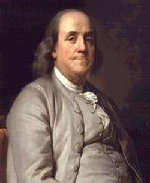
Renaissance Man & Founding Father, "First American", Ben Franklin was a printer, inventor, scientist, politician, postmaster, statesman, satirist & diplomat. His inventions included the lightning rod, bifocals, Franklin stove &, his favorite, the glass harmonica. His service as US Ambassador to France from 1776 to 1783 was crucial in obtaining French support. With a character that appealed to the common man, Franklin embodied the virtues of thrift, industry, education & self-governance.
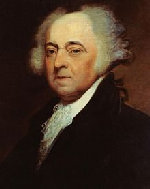
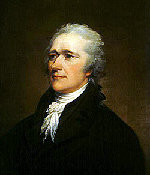
Lawyer, statesman, diplomat, Founding Father & 2nd President of the United States, John Adams was one of the most ardent supporters of independence. He assigned Thomas Jefferson the task of drafting the Declaration of Independence & was a major negotiator in the peace treaty with Great Britain. During the war he was instrumental in obtaining much needed loans from Amsterdam. It was John Adams who nominated George Washington to be Commander-in-Chief.
Like other countries, America had its share of warriors; military men who secured our sovereignty on the battlefield. But in addition, America was crafted by brilliant men of science, law, theology, diplomacy & virtue. Some of them are listed here. It was they who pledged their lives, their virtue & their sacred honor that we might have America. They deserve our remberence & our thanks.
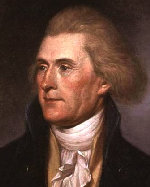
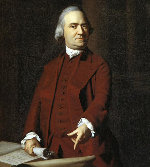
Statesman, Delegate to the 1st Continental Congress, Gov of Massachusetts, Founding Father, signer of the Declaration of Independence & architect of the principles of Republicanism, Samuel Adams was part of the movement opposing British attempts to tax the colonists without their consent. He was at the forefront of resistence to the Stamp Act & the Townshend Acts and helped organize the Boston Tea Party. In a speech in Philidelphia he said, "If ye love wealth greater than liberty, the tranquility of servitude greater than the animating contest for freedom, go home from us in peace. We seek not your counsel nor your arms. Crouch down & lick the hand that feeds you; may your chains set lightly upon you & may posterity forget that you were our countrymen."
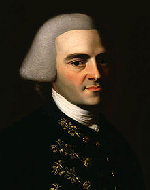
First Governor of Massachusetts & President of the 2nd Continental Congress, John Hancock was one of the wealthiest men in the colonies & used his wealth in league with Sam Adams to assist the colonial cause. His popularity with the people increased when the British siezed his sloop Liberty & charged him with treason. He wanted to join the battlefield but was convinced by others that he could best serve as a politician. He would use his influence to convince Massachusetts to ratify the Constitution. In 1768 British officials boarded his brig Lydia. Since they had no writ of assistance, Hancock would not allow them below deck. When the officials attempted to proceed anyway, Hancock's men forced them off the vessel. Some consider the incident the first act of physical resistance to the British. Hancock is best known for his flamboyant signature on the Declaration of Independence.
Alexander Hamilton was one of America's first constitutional lawyers & wrote most of the Federalist Papers. He was the first US Secretary of Treasury & established America's economic policies during Washington's administration. Among his creations was the funding of state debt by the Federal Government, a national bank, a system of tarriffs, & trade relations with Britain. He supported Thomas Jefferson, Aaron Burr's rival for president in 1800 & 1804. Burr challenged Hamilton to a duel in July 1804. Hamilton was fatally wounded & died days later.
Thomas Jefferson was the principal author of the Declaration of Independence & 3rd President of the United States. He was the main architect of Jeffersonian Democracy which supports equality, democracy, religious freedom & civic duty. Adherents to this philosophy were suspicious of aristocracy, privelege & the elitism of merchants. Constantly on the watch against British forms of government, they were in direct opposition to Hamilton's Federalists.
Click image to enlarge





